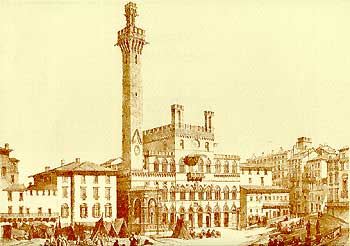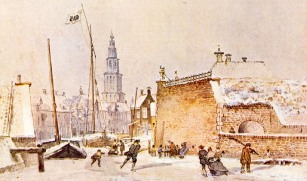|
In this workshop week, we address the analysis of longitudinal, group-centered network data by way of stochastic, actor-based models (Snijders, van de Bunt & Steglich, 2010), and about the analysis of peer influence processes taking place in such dynamically changing networks (Steglich, Snijders & Pearson, 2010). It falls apart into two parts:
-
The Winter School (Monday till Wednesday) introduces participants to the analysis of longitudinal, group-centered network data by way of stochastic, actor-based models (Snijders, van de Bunt & Steglich, 2010), and to the analysis of peer influence processes taking place in such dynamically changing networks (Steglich, Snijders & Pearson, 2010).
Objective of the Introductory Workshop is that course participants develop an understanding of the models, familiarise themselves with the use of the RSiena software for model estimation, and learn how to tell a good model specification from a bad one.
-
The Advanced Siena Users' Meeting (Thursday and Friday) addresses recent developments and the analysis of more complex data structures; topics addressed will depend on the collective preferences of the participants.
Objective of the Advanced Workshop is that course participants deepen their understanding of the models and broaden their skills to apply them to more complex data sets.
In both parts of the workshop week, researchers who bring their own longitudinal data sets should get sufficient opportunity to "get the software running" with some guidance by the instructors.
On this page you find the programme and course material of the Winter School, which will take place in Room A12 of the university's Academy Building in the city centre of Groningen (Broerstraat 5). Sessions generally start at 9:00 and end at 17:00, with an ample lunch break in the middle. Teachers in 2019 will be Tom Snijders (AdSUM), Mark Huisman (Winter School), Christian Steglich (Winter School), and Robert Krause (AdSUM), with support by Christine Timmerman.
  Preparation before the course Preparation before the course 
Course participants are expected to bring their own laptop to the course, with the R
software already installed. For this purpose, please follow these instructions:
1. Install R on your computer; see http://www.r-project.org/
2. Install RStudio on your computer; see https://www.rstudio.com/
3. Start R while you have an internet connection.
4. Install the latest version of the RSiena package from R-forge
by typing install.packages("RSiena", repos="http://R-Forge.R-project.org")
5. (AdSUM only) Install the latest version of the RUnit package
by typing install.packages("RUnit")
6. (AdSUM only) Install the latest version of the RSienaTest package
by typing install.packages("RSienaTest", repos="http://R-Forge.R-project.org")
The operating system on the laptops can be Windows (32 or 64 bit), Linux, or Mac OS;
in principle, all software we will work with is designed for platform-independence.
The course material will be posted over the workshop week below. There will
be changes of some material, but most of it will be used as it is available now.
  Course Material Course Material 
We meet at 9:00 and end at 17:00, with a longer lunch break in the middle (see programme for details of the schedule).
Files to download:
- Workshop programme, distributed earlier to all participants by e-mail.
- Monday slides and lab exercises.
- Tuesday morning slides and lab exercises.
- Wednesday morning slides and lab exercises.
- Robert's R markdown versions of three exercises: network dynamics, co-evolution, and two-mode/bipartite analyses.
- AdSUM-2019 updated topics list, distributed in an earlier version to all participants by e-mail.
- Robert's R markdown page on advanced missing data handling.
  Relevant weblinks Relevant weblinks 
> Siena website and
RSiena manual
> StOCNET-RSiena User group (for discussion of applied research)
> R project webpage
> Journal of Research on Adolescence Special Issue on RSiena applications
|


